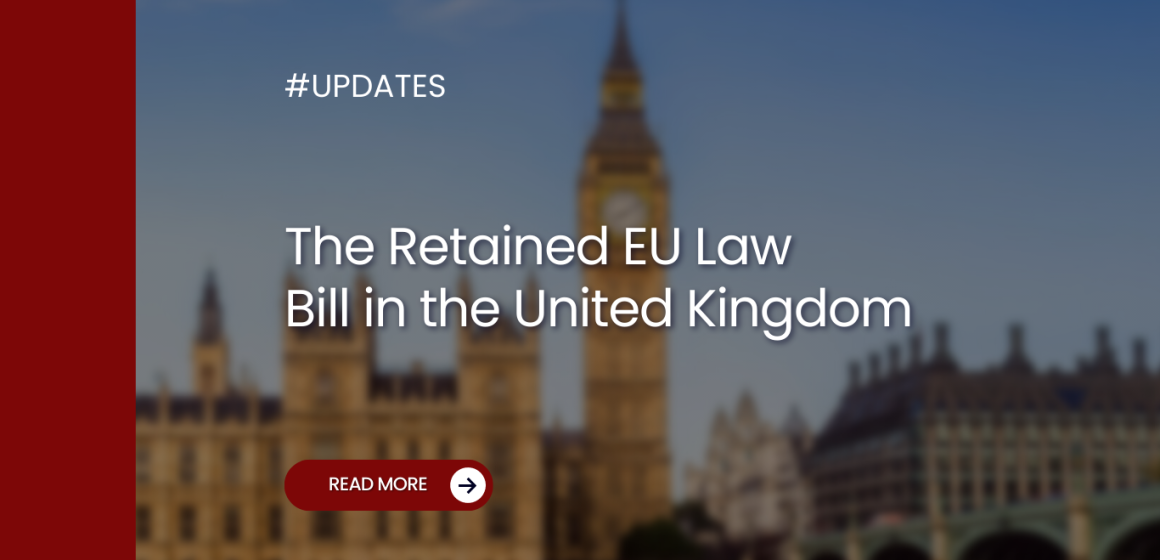General information
On 22nd September 2022, the Retained EU Law (Revocation and Reform) Bill was introduced to the UK Parliament. Retained EU Law is a category of domestic law prepared at the end of the transition period of the Brexit exit and consists of EU-derived legislation that was preserved in the UK domestic legal framework by the European Union (Withdrawal) Act 2018.
By enacting this Bill, it is planned to end the special status of the Retained EU Law in the UK legislation on 31st December 2023. Accordingly, the Bill will enable the Government to amend more easily and repeal and replace the Retained EU Law. By ending the special status of the Retained EU Law, it is also intended to reclaim the sovereignty of Parliament and restore primacy to Acts of Parliament.
The Content of the Bill
Sunsetting Retained EU Law
The Bill will sunset the majority of retained EU law. Namely, all retained EU laws contained in domestic secondary legislation will expire on 31st December 2023 unless otherwise preserved. In this regard, any retained EU law that remains in force after the sunset date will be assimilated into domestic legislation. The Bill also includes an extension mechanism for the sunset of specified pieces of retained EU law until 2026.
Ending of Supremacy of the Retained EU Law from UK Law
By enacting this Bill, it will end the supremacy of the retained EU law over the domestic UK legislation. Accordingly, the Bill will reinstate domestic law as the highest form of law in UK legislation.
Assimilated Law
This Bill provides that any retained EU law, which is preserved after 31st December 2023, will become “assimilated law” in a manner that EU interpretive features will no longer be applied.
Facilitating Departures from Retained EU Case Law
The Bill will also provide domestic courts with greater discretion to depart from the retained case law.
Powers relating to Retained EU Law
By enacting the Bill, it will create powers to make secondary legislation so that retained EU law can be amended, repealed and replaced more easily.


